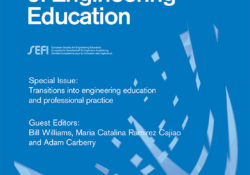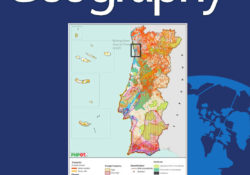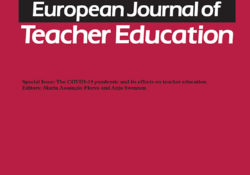tandfonline.com har udgivet en rapport under søgningen “Teacher Education Mathematics”: Abstract Abstract Recent events resulting from the Covid-19 pandemic precipitated a triage-like environment wherein experienced faculty were forced to convert courses rapidly to online venues. This unexpected circumstance forced educators to adopt different learning theories of which they were largely unaware. The results were predominantly unsatisfactory for both learner and educator. This paper provides perspectives to this unfortunate circumstance, describes positive and negative aspects of the experiences, presents best practices for deep online learning, and challenges geography educators to learn how instructional design for online courses can be leveraged. The goal is to provide a forum for online learning in geography education. Link til kilde
Like this:
Like Loading...
tandfonline.com har udgivet en rapport under søgningen “Teacher Education Mathematics”: ABSTRACT ABSTRACT This mixed-methods study was designed to measure and elaborate constructs of faculty online readiness from pre- COVID-19 pandemic literature. Bringing together the validation of a scale to measure these constructs and insights from a focus group, findings suggest that the negative connotations of risk-taking and making mistakes while learning to teach online seem to have been mitigated by a combination of affective factors such as humility, empathy, and even optimism. Teacher educators explained that transitioning online in a context of a crisis contorts normal longitudinal perceptions of preparation and readiness. This new sense of temporality was connected to unexpected benefits of bringing them into partnership with their students. However, quantitative and qualitative results are interpreted to show that… Continue Reading →
Like this:
Like Loading...

tandfonline.com har udgivet en rapport under søgningen “Teacher Education Mathematics”: ABSTRACT ABSTRACT Transition from education to practice can be troublesome for many early-career engineers because expectations, habitual work practices and values tend to conflict with realities of engineering workplaces. Emerging technologies referred to as ‘Industry 4.0’ or the ‘fourth industrial revolution’ have prompted many to argue for students to develop improved socio-technical skills. Understandings of practice emerging from contemporary research could help educators shape a new generation of engineers with more appropriate abilities to restore global productivity growth and transform economies to eliminate greenhouse emissions in a short enough time to limit human-induced global warming. However, so far, explicit curriculum reforms addressing graduate attributes and workplace skills have not resulted in significant employability improvements. This paper argues that assessment practices… Continue Reading →
Like this:
Like Loading...
sciencedirect.com har udgivet: Highlights • Three profiles of second career teachers are identified, based on entry-related variables. • Push factors fulfill an important role in explaining their career transition. • The profiles differ significantly in terms of teachers’ sense of efficacy. Abstract In this study, we present and evaluate a way to profile second career teachers in technical and vocational education and training schools that goes beyond the traditional motivational approach. More specifically, by considering multiple entry-related variables (entry motivation, career adaptability, and prior job satisfaction). Analyses based on a mixed methods design (262 prospective and in-service second career teachers for the latent profile analysis and 7 in-service teachers for the multiple case study) revealed three profiles with their own specific characteristics, and predicting different levels of sense of efficacy… Continue Reading →
Like this:
Like Loading...


